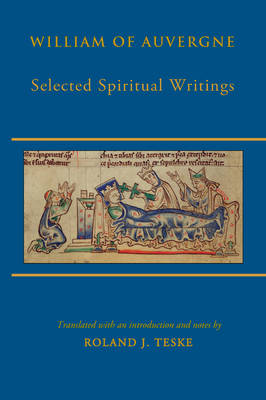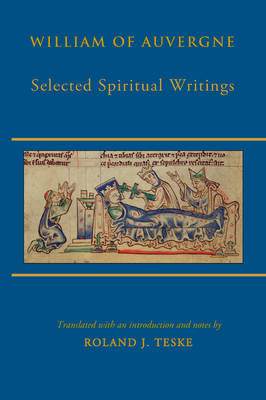
- Afhalen na 1 uur in een winkel met voorraad
- Gratis thuislevering in België vanaf € 30
- Ruim aanbod met 7 miljoen producten
- Afhalen na 1 uur in een winkel met voorraad
- Gratis thuislevering in België vanaf € 30
- Ruim aanbod met 7 miljoen producten
Zoeken
€ 27,45
+ 54 punten
Omschrijving
This volume contains translations of three of William of Auvergne's shorter more spiritual works: Cur Deus homo (Why God Became Man), De gratia (On Grace), and De fide (On Faith). Each work touches upon the understanding of the relation between nature and grace, the moral and theological virtues, and of the need for our redemption by Christ and its character. The introduction situates the treatises within William's many works and within the thought of the early thirteenth century. In the first treatise William sets forth the reasons for the incarnation of the Word. In it he is deeply influenced by Anselm of Canterbury's emphasis on the need for satisfaction to be made to God for human sin, a satisfaction that could only adequately be made by someone both divine and human. While Anselm claimed to provide necessary reason of the incarnation, William admits that God could have redeemed the world in another way. In the second William argues for the need of grace in order for human beings to return to God and aims to refute the position of the Pelagian heretics as he understood it. In the third treatise, William defines faith and establishes belief in God as the foundation of faith - something, he argues, that cannot be grasped by the human intellect alone.
Specificaties
Betrokkenen
- Auteur(s):
- Vertaler(s):
- Uitgeverij:
Inhoud
- Aantal bladzijden:
- 136
- Taal:
- Engels
- Reeks:
- Reeksnummer:
- nr. 50
Eigenschappen
- Productcode (EAN):
- 9780888443007
- Verschijningsdatum:
- 1/03/2011
- Uitvoering:
- Paperback
- Formaat:
- Trade paperback (VS)
- Afmetingen:
- 152 mm x 226 mm
- Gewicht:
- 181 g

Alleen bij Standaard Boekhandel
+ 54 punten op je klantenkaart van Standaard Boekhandel
Beoordelingen
We publiceren alleen reviews die voldoen aan de voorwaarden voor reviews. Bekijk onze voorwaarden voor reviews.











